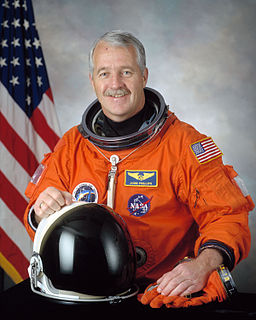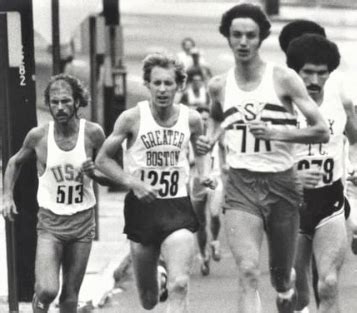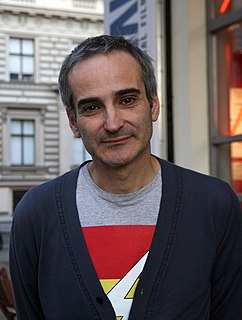A Quote by John L. Phillips
I think it's going to be a very important, unique data set in terms of measuring the behavior of your lower body in space and trying to figure out what we can do to preserve bone and muscle density.
Related Quotes
No one goes on a direct path, even though it sometimes feels like your peers might be racing ahead. Everyone's trying to figure it out. But if you just put yourself out there, step out of your comfort zone, establish yourself in terms of skills, mentorship, but leave space for your passions, then you're going to turn out pretty well.
One of the biggest concerns about going out beyond lower Earth orbit is the radiation. We find that exercise seems to counteract a lot of the negative effects of space flight, like bone loss and muscle atrophy and cardiovascular systems issues. We exercise two hours a day on the station, which is a huge hit out of your day. It's great for staying in shape, but you know, it cuts into the productivity of the crew and if you look at how expensive it is to get a crew into space, if we can keep them healthy and have them exercise, but spend less time doing it, we can get more done.
Leg day is my favorite day. You can't have a thorough leg workout without feeling completely spent. It's a challenge, but the benefits of maintain muscle mass on my legs is important because, as the biggest muscle group in the body, it also helps me keep the proper body composition in terms of fat to muscle ratio.
Other anatomical changes associated with long-duration space flight are definitely negative: the immune system weakens, the heart shrinks because it doesn't have to strain against gravity, eyesight tends to degrade, sometimes markedly (no one's exactly sure why yet). The spine lengthens as the little sacs of fluid between the vertebrae expand, and bone mass decreases as the body sheds calcium. Without gravity, we don't need muscle and bone mass to support our own weight, which is what makes life in space so much fun but also so inherently bad for the human body, long-term.
I think the Russians are trying to figure out what to do. I don't think they know what to do with our president Donald Trump. I don't think they know what to do with the situation. They've been isolated when it comes to Syria and they're trying to figure out what their place in the world is going to be.
I can only wonder what astronauts must feel like or something like that when you're really in the space of silence and you are feeling and breathing in a way that you're really aware of your muscle and bone and the breath and the body and the movement and all of those things that just you take for granted in the urban landscape.
Humans like to think of themselves as unusual. We've got big brains that make it possible for us to think, and we think that we have free will and that our behavior can't be described by some mechanistic set of theorems or ideas. But even in terms of much of our behavior, we really aren't very different from other animals.
When I make films I'm very intuitive; I'm instinctive. When you are shooting there's little time to think about abstract ideas, it's about getting things done, getting them right, and trying to channel the energies and get the best of whatever you have on your set. It's only once the film is finished that it's like, "Okay, let's try to figure out what happened." Try to figure out exactly what I did.






























